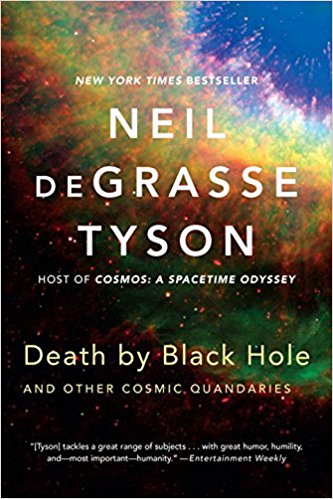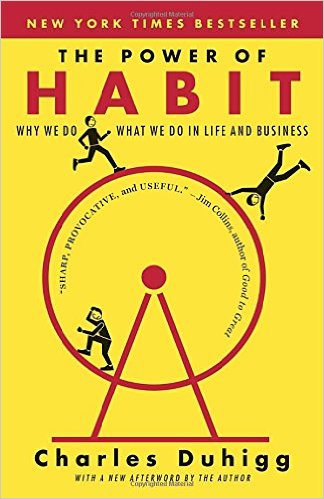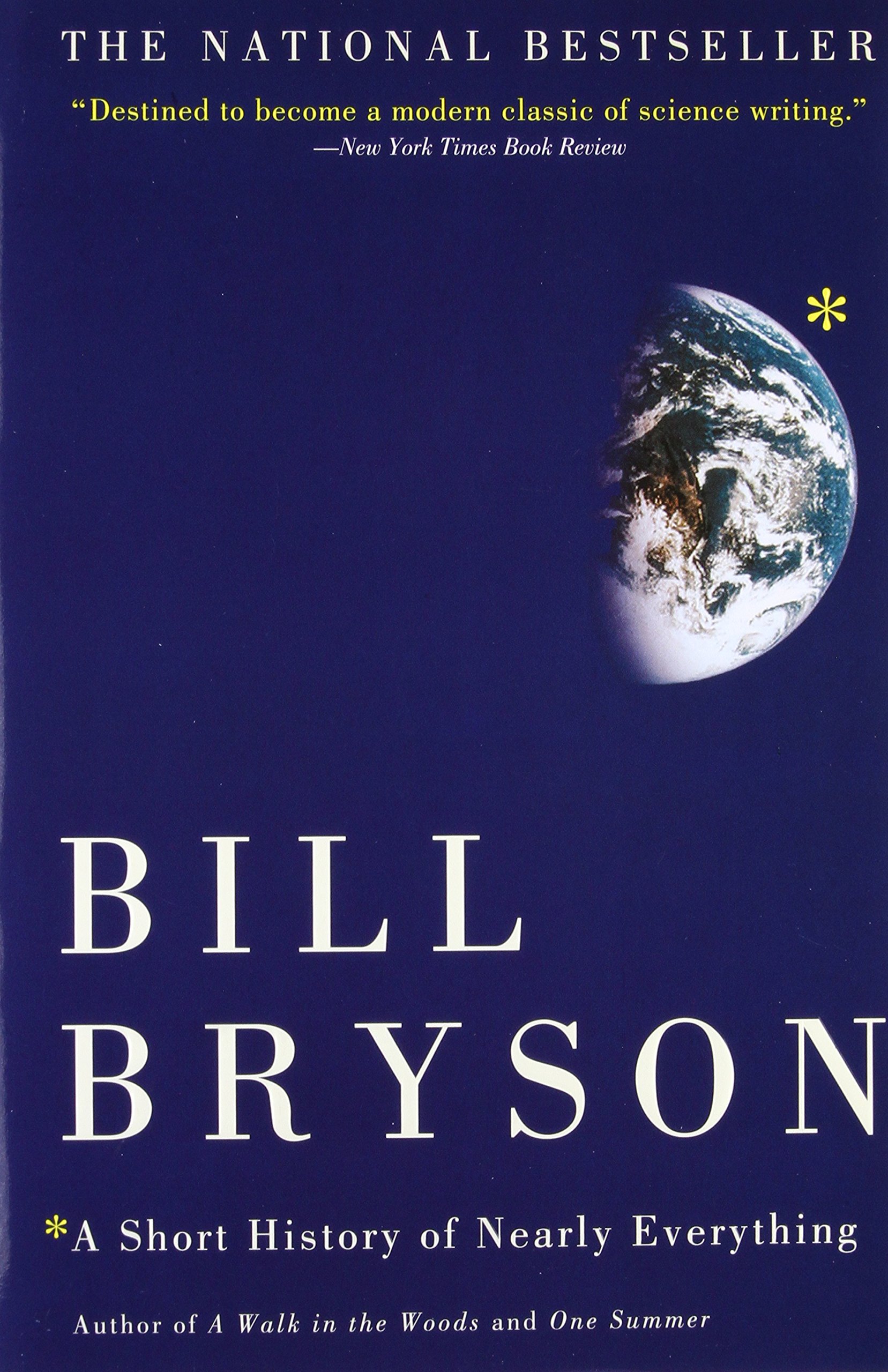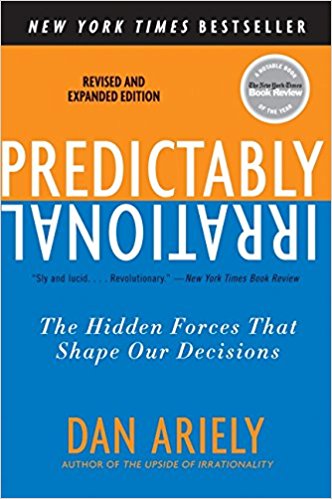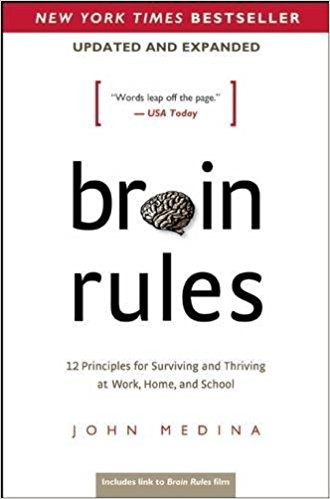FAVORITES.
I like to learn. A lot. Here are some of my favorite books, podcasts, TED Talks, and more.
DEATH BY BLACK HOLE
Neil deGrasse Tyson
This is one of the greatest books I've ever read about space. Death by Black Hole by Neil deGrasse Tyson is a collection of approximately 40 essays by the world-reknowned astrophysicist. Just how big is a billion? It would take you almost 32 years to count to 1 billion without a single break to eat, sleep, or check your phone—and that's assuming you can read a number a second!
Did you know you are made of stardust? It's true. In fact, nearly everything in the known universe was created in the core of a star and was born into the unviverse when that star went supernova—the technical term for when a star explodes.
Click the button below for the answer to the title question: How do you die if you're sucked into a black hole?
SPAGHETTIFICATION!
THE POWER OF HABIT
Charles Duhigg
Target (and all the other big brands) knows way more about you than you think. How? And what do they do with that information once they have it?
How did a general stop riots in Iraq? The anwer, it might surprise you, involves... food.
Want to know how to break a bad habit? Establish a good one? Check out this excellent book. I can't recommend it enough.
MINDSET
Carol S. Dweck, Ph.D.
What's the difference between a fixed mindset and a growth mindset? Having a fixed mindset means believing that you were born with limited abilities and a finite intelligence–that you'll never get any smarter no matter what you do. Having a growth mindset means that you understand that the brain is a muscle and that just like any muscle, it grows stronger through struggle and challenge. According to Dweck's extensive research, an individual's mindset can have a profound effect on their success and happiness in life.
THE GRAPES OF WRATH
John Steinbeck
This is one of the greatest books about America I've ever read. The Grapes of Wrath by John Steinbeck takes the reader into the world of American farmers at a turning point in American history: the collision of the the Dust Bowl, the Great Depression, and the mechanization of the agricultural industry. Forced off their land by big banks and corporate greed, desperate to earn an honest living, the Joad family sees no other choice but to head west in search of work. What they find will give pause to even the most heartless among us.
A SHORT HISTORY OF NEARLY EVERYTHING
Bill Bryson
Bill Bryson tells the (scientific) history of the planet, from the Big Bang to now. My favorite part of the book answers the one question we all asked ourselves while gazing up at the stars: Is there life out there?
“Still, statistically the probability that there are other thinking beings out there is good… Under Drake’s equation you divide the number of stars in a selected portion of the universe by the number of stars that are likely to have planetary systems; divide that by the number of planetary systems that could theoretically support life; divide that by the number on which life, having arisen, advances to a state of intelligence; and so on. At each such division, the number shrinks colossally—yet even with the most conservative inputs the number of advanced civilizations just in the Milky Way always works out to be somewhere in the millions.”
PREDICTABLY IRRATIONAL
Dan Airely
This book introduced me to the field I believe will shape the future more than any other: behavorial economics. Dan Airely expertly explains the science of how we make decisions.
Why do our headaches persist after we take a one-cent aspirin but disappear when we take a fifty-cent aspirin?
Why do we splurge on a lavish meal but cut coupons to save twenty-five cents on a can of soup?
The answer is that humans are predictably irrational.
OUTLIERS
Malcolm Gladwell
This is the book that started it all for me. Malcom Gladwell's deep dive into the lives and experiences of humans at the top of their fields opened the flood gates and I haven't stopped reading since.
Ever think that some people are just born great? What do Michael Jordan, Wayne Gretzky, Muhammad Ali, Bill Gates, Albert Einstein, Elon Musk, John Rockefeller Andrew Carnegie, and The Beatles all have in common?
The answer may surprise you. None of them claim to be born with it. Instead, Gladwell discovered that everyone he interviewed—from elite athletes to prodigies to titans of industry to rock 'n' roll gods—had put in at least 10,000 hours of practice.
In perhaps my favorite chapter, Gladwell dispells the myth that Asian children are simply born better at math than the rest of us puny humans by explaining that a few simple factors have given them a leg up and more importantly, what we can learn from them.
BRAIN RULES
John Medina
We don't know much about the human brain. But what we do know can and should have a profound impact on the way we live our lives. Molecular biologist John Medina lays out 12 rules for surviving and thriving in the world today.
How important is sleep? So much so that Medina actually advocates for daily naptime—even for adults!
Did you know that early humans moved up to 12 miles a day! Our brains evolved to learn on the fly—so get up, get movin', and your brain will thank you!
